If you’re pursuing a career in accounting, you’ve no doubt heard about the CMA and CIA certifications, both of which can help you grow as a professional.
Either of these can enhance your credibility and both can have a significant impact on your career path and earning potential. Which is better for you, however, will depend on your interests and goals. Obtaining either one takes a significant investment of time and money, so it’s smart to really understand the benefits and costs of each before committing to one.
In this post, I’ll compare these two certifications, break down the costs and prerequisites for each one, and discuss the career paths they’re best suited for.
(Quick note: the CMA is also frequently compared to the CPA. Check out this post to learn how these two designations stack up against each other.)
CMA vs CIA — What Do They Mean?
Let’s start with a quick summary of what each certification is and what it will allow you to do.
CMA: Certified Management Accountant
The Certified Management Accountant (CMA) certification is offered by the Institute of Management Accountants (IMA). CMAs have strong management as well as financial accounting knowledge, which gives them the skills to help their companies plan, analyze, and make decisions about their finances. It’s the only globally recognized management accounting certification, meaning it gives you access to jobs all over the world.
In order to obtain a CMA, candidates must:
- Have a bachelor’s degree or a professional accounting certification, such as an MBA or CPA
- Have at least two years of work experience in management accounting or financial management
- Successfully complete Parts 1 and 2 of the CMA exam
Note that your work experience does not have to be completed before you take the exam. You have up to seven years after taking the exam to meet the work requirement to be awarded the certification.
Candidates who pass the exam must also agree to meet continuing education requirements and comply with standards of professional conduct.
CIA: Certified Internal Auditor
The Certified Internal Auditor (CIA) certification, as the name implies, qualifies you to conduct internal audits. It is granted by the Institute of Internal Auditors (IIA) and is the only globally recognized internal audit certification.
The requirements for a CIA certificate are somewhat more flexible than the CMA. You’ll still need some internal accounting experience before you’re awarded the certification, but the exact amount depends on your level of education.
Experience can include internal audit, quality assurance, risk management, audit/assessment/disciplines, compliance, external audit and internal control work.
Education | Experience |
Master’s degree or equivalent | 1 year IA experience or equivalent |
Bachelor’s degree or equivalent | 2 years IA experience or equivalent |
Active Internal Audit Practitioner designation holder | 5 years IA experience or equivalent |
High school diploma or equivalent | 5 years IA experience or equivalent (must be completed before entering the CIA program) |
CMA vs CIA Cost Comparison
The CMA and the CIA exams both require investments of time and money. While the cost is arguably the least important factor in deciding which exam to take, it’s still helpful to know what to expect so you can budget accordingly.
CMA
The total cost to take the CMA exam is $1200 for professional members and $900 for students. Note that these fees are in addition to a membership fee of $275 for professionals and $45 for students. These fees do not include study materials or the cost of a review course, so be sure to plan for those as well.
If these numbers seem intimidating, check out the IMA scholarship program or learn how to ask your boss to pay!
CMA Exam Fees | Professional | Student |
CMA Entrance Fee | $280 | $210 |
Exam Part 1 | $460 | $345 |
Exam Part 2 | $460 | $345 |
Membership fee | $275 | $45 |
CIA
The cost of the CIA exam is $855 for members, $1315 for non-members, and $655 for students. Additionally, there is a membership fee of $255 for professionals and $40 for students. As with the CMA exam, registration fees do not include study materials or a review course.
CIA Exam Fees | Professional | Non-member | Student |
Application fee | $115 | $230 | $65 |
Part 1 | $280 | $395 | $230 |
Part 2 | $230 | $345 | $180 |
Part 3 | $230 | $345 | $180 |
Membership fee | $225 | N/A | $40 |
CMA and CIA Exams
The CMA and CIA exams require you to demonstrate in-depth knowledge and proficiency on a variety of subjects. It’s important to know what you expect so that you can prepare appropriately.
CMA
The CMA exam consists of two tests, Parts 1 and 2, covering a total of 12 competencies. Each part takes four hours, and consists of 100 multiple-choice questions and two essay questions (I go into more depth on preparing for the multiple choice questions and the essay portions).
Part 1 goes over Financial Planning, Performance, and Analytics, and includes the following competencies:
- External Financial Reporting Decisions
- Planning, Budgeting, and Forecasting
- Performance Management
- Cost Management
- Internal Controls
- Technology and Analytics
Part 2, Strategic Financial Management, covers:
- Financial Statement Analysis
- Corporate Finance
- Decision Analysis
- Risk Management
- Investment Decisions
- Professional Ethics
The exam is offered three times a year, in January/February, May/June, and September/October, with Parts 1 and 2 each being offered multiple times. Candidates have the option of taking the tests at a testing center or doing them remotely.
CMA exam results are posted approximately six weeks after the exam month. There is no set waiting period before you can retake the exam, but you cannot take an exam part more than one time during a testing window.Both the parts need to be successfully completed within 36 months in order to get officially certified.
The pass rate for the CMA averages about 50% for each of the two sections of the test. For tips on how to study for the exam, be sure to read this blog post about creating a study plan, finding the best review materials and more.
CIA
There are three parts to the CIA exam, each consisting of multiple-choice questions only:
- Part 1, Essentials of Internal Auditing, covers audit activity, objectivity, and governance concepts. Candidates are also tested on how to identify risks and manage them. There are 125 questions, and you have 2.5 hours to complete this part.
- Part 2, Practice of Internal Auditing, covers audit engagements, fraud, and document and report audits. There are 100 questions, and you have one hour to complete this part.
- Part 3, Business Knowledge for Internal Auditing, covers business analysis, informational security, information technology, and financial management. Again, there are 100 questions, and you have one hour to complete this part.
Unlike the CMA, you can take the CIA anytime you like, and exam results are posted within 24 to 48 hours. However, if you fail any part, there is a 60-day waiting period before you can try again. In order to get the certification, you need to successfully complete all parts of the exam within three years of enrolling.
Globally, the average pass rate for the three parts of the exam is about 48%.
Salary Projections for CMA and CIA Designations
Ultimately, what you can earn with a CMA or CIA designation will depend on a variety of factors, including your experience, industry, location, and personal goals.
But to give you a general idea, here are the average salaries for each certification:
CMA Salary
According to the IMA’s CMA 2020 Salary Survey, the median total compensation (including salary, bonuses, overtime, profit sharing, etc.) for people with CMA designation is $116,000 a year in the USA. To put that in perspective, CMA holders earned an average of 36% more than their peers without a CMA.
CIA Salary
According to Payscale, the average salary for an accountant with a CIA is $90K/year.
Given that the median salary for accountants and auditors is $77,250, this suggests that a CIA is worth, on average, about a 16% boost to your income.
CMA vs CIA — Which One Should You Choose?
So, which is better, the CMA or the CIA designation?
In all honesty, it depends on your interests, your background, and your goals as a professional. It may also depend on where you are in your career right now, and whether your background and current commitments make one a better fit for you than the other.
If you have a good eye for detail, enjoy working with data, and have a strong regulatory knowledge in addition to solid accounting skills, the CIA could be a good fit.
If the more strategic and analytical aspects of accounting appeal to you, if your goals include a more managerial role and a higher salary, or if you simply want more flexibility within your career, the CMA may be a better choice.
Personally, I chose to add a CMA to my resume and can vouch that it’s helped me earn a higher salary and opened up opportunities I wouldn’t otherwise have had.
If you decide that the CMA route is the one for you, I strongly suggest taking a preparation course to streamline your study efforts and make sure you’re able to get the certification in a timely manner. Check out my post comparing the best CMA prep courses so you can choose the one that’s best for you.
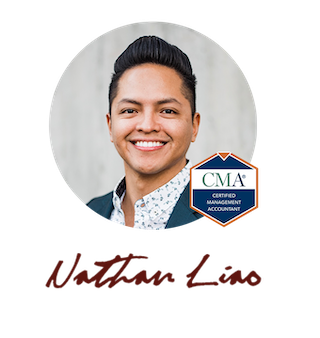
Hi, I’m Nathan Liao (aka the CMA Coach)! For the last 10 years, over 82,000 accounting and finance pros came knocking at my door seeking guidance and help. If you’re also aiming to conquer the CMA exam on your very first try—without wasting away time or money—you’ve found your ultimate guide. Dive in deeper to discover more about me and the dedicated team that powers CMA Exam Academy. Click here and let’s embark on this journey together!

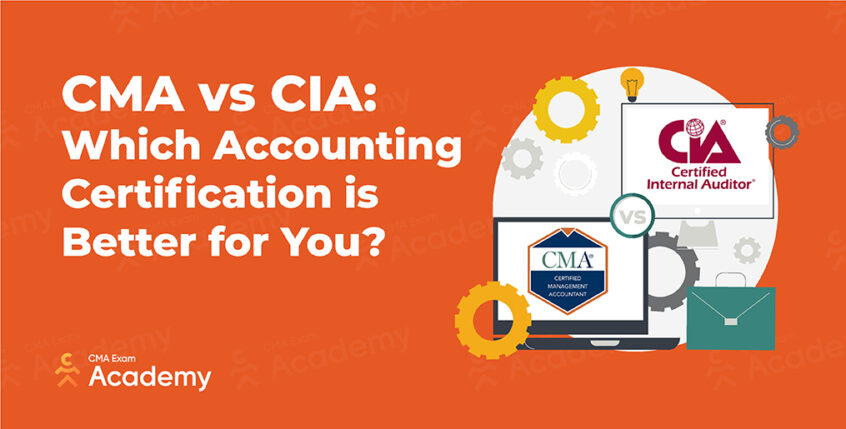
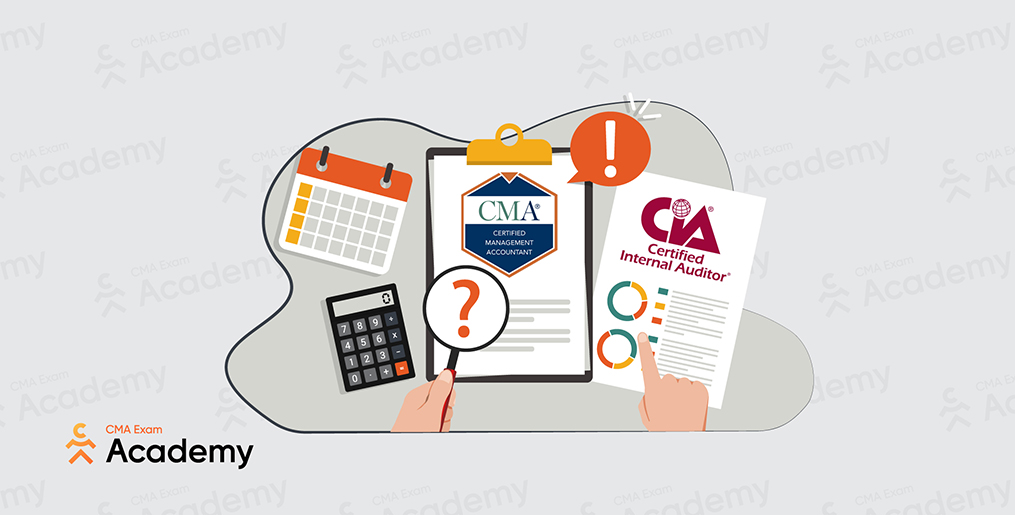
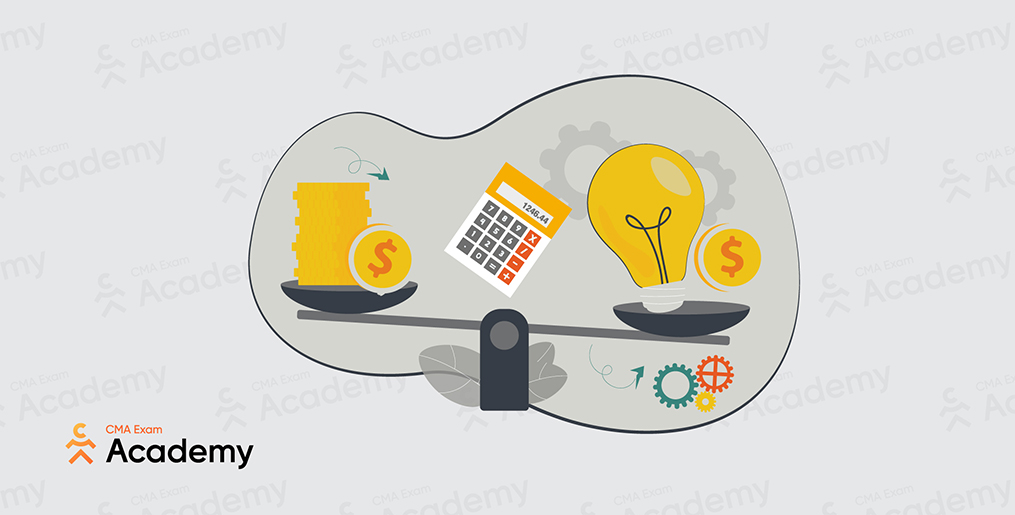
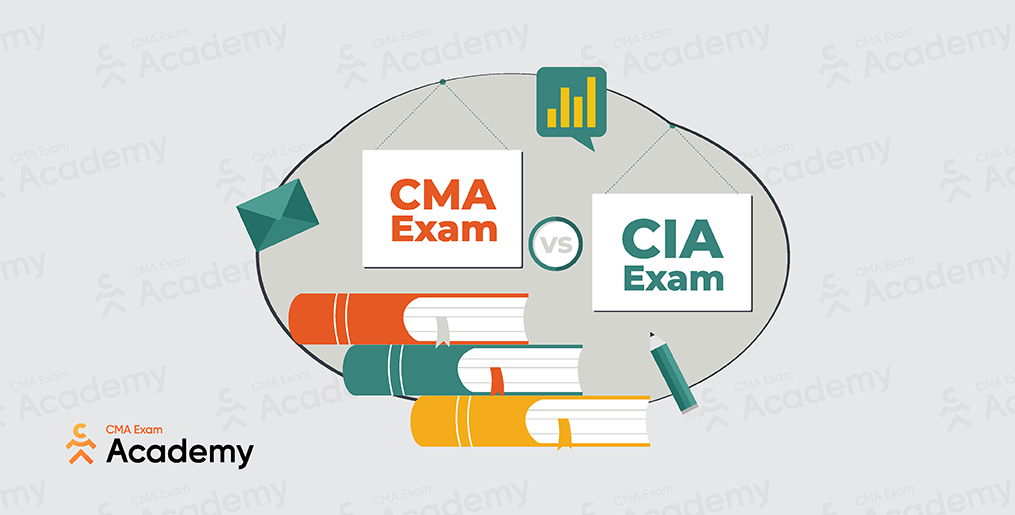
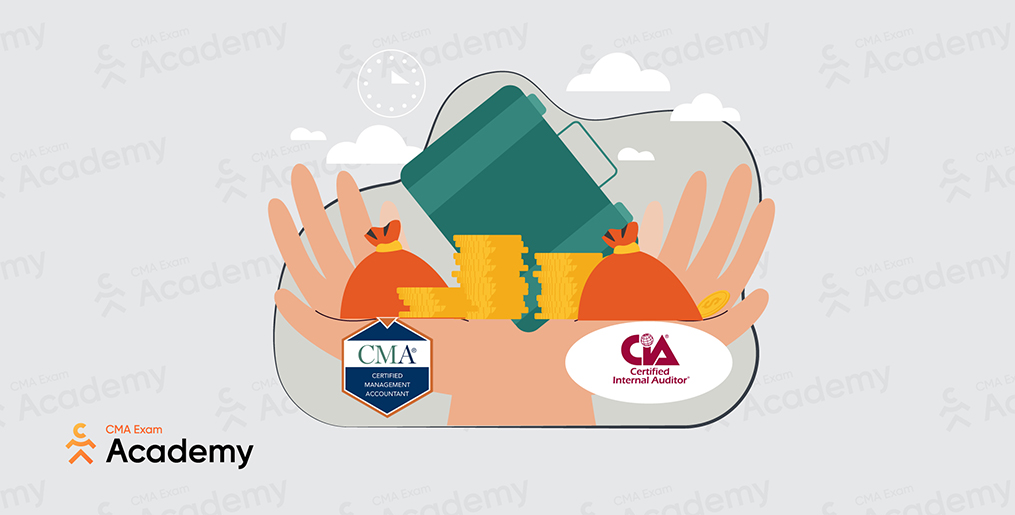
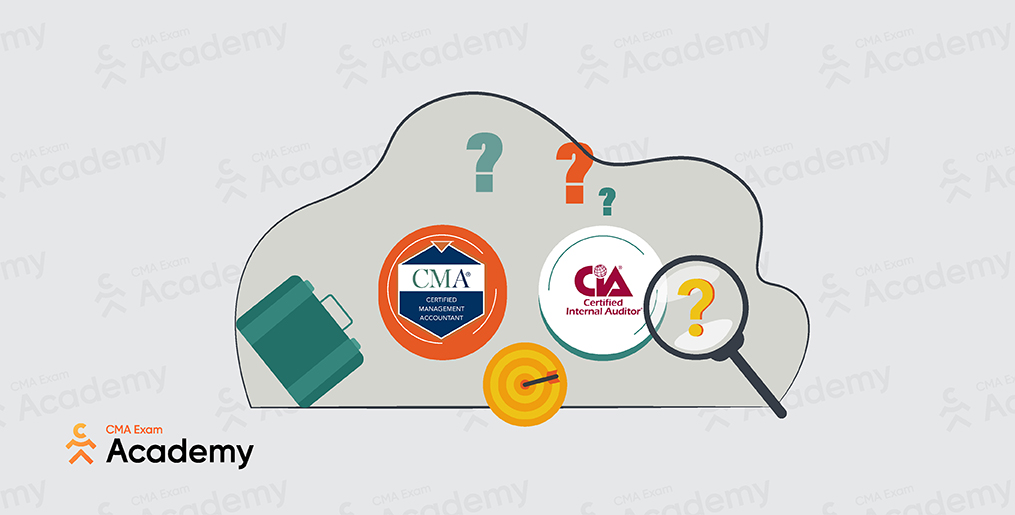

2 Comments on “CMA vs CIA: Which Accounting Certification Is Better for You?”
I am interested to try and take the exam. I am working right now as auditor with the State of Missouri for close to 2 years by September this year but finished Accounting in 1984 so i need a good review class to build up my confidence. Can i talk to someone with regards to what i read from above, that it needs to pass the 3 part exam in 3 years? So what happen if after 3 years, let say 1 part was not passed, what are the consequences? Please guide me.
Hi Elaine,
It’s great to hear you’re interested in taking the CMA exam.
Please note that the CMA exam consists of 2 parts and there is a 3-year timeframe of the CMA entrance fee that starts on the date of entering the CMA program. If both exam parts are not completed and passed within the 3-year timeframe of the CMA entrance fee, it will have to be repaid, and any passed part will expire.
If you have any other questions, feel free to hit reply.